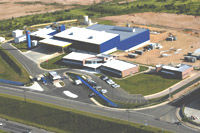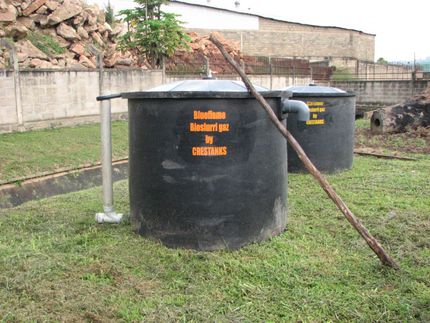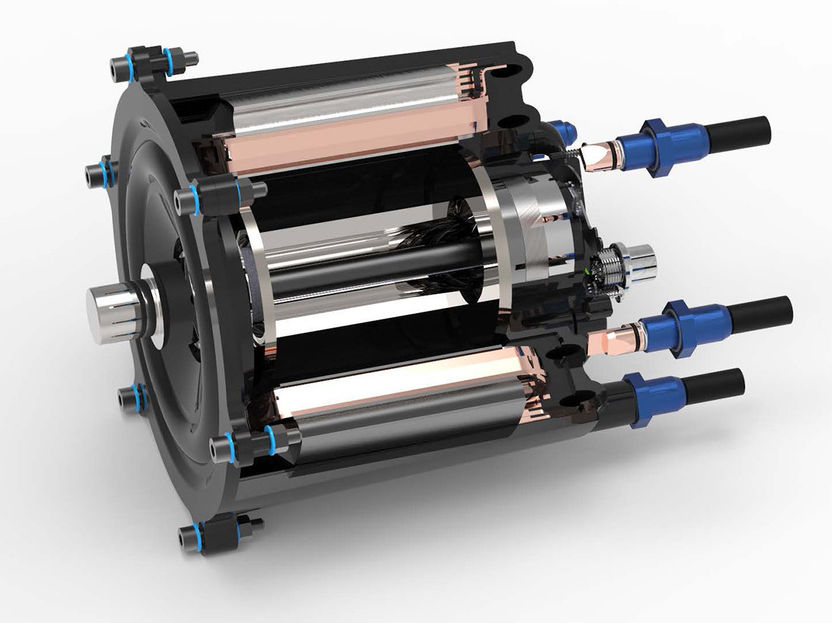Beyond the corn field: Balancing fuel, food and biodiversity
New report outlines trade-offs of biofuel production
The development of alternative fuel will greatly benefit the U.S., say scientists in an Energy Foundation-funded report published by the Ecological Society of America (ESA), the nation's largest organization of ecological scientists. However, in order to effectively reap the social and economic benefits of biofuel production, U.S. policies need to address potential effects of land-use choices on our ecosystems.
In the report, scientists Virginia Dale, Keith Kline, John Wiens and Joseph Fargione review the current research on biofuel production and its potential effects on ecosystems. They also analyze the social, economic and ecological challenges of biofuel production and the most effective routes to developing sustainable, renewable fuel alternatives.
"There are several methods of biofuel production, all of which affect the ecological systems around us in ways that can reap benefits if feedstock type, management, transport and production choices are appropriate for the setting," says Virginia Dale from Oak Ridge National Laboratory in Oak Ridge, TN. "In order to balance increasing demands on land for urban, industrial and agricultural use, policies need to incorporate socioeconomic and ecological principles in view of current and past land uses. Existing research provides the basis for weighing the costs and benefits of the different options for feedstocks, management and production within an overall design for sustainability of ecosystem services within a region."
The report addresses feedstock options and their potential land-use effects, the influences of farm policies on allocating acreage, the complexities of land use, carbon emissions and biofuel production assessments, the "food versus fuel" and water usage costs and benefits associated with biofuel expansion, and the elements needed to maximize social, economic and ecological benefits in bioenergy system design.
"To clarify the tradeoffs associated with land use for food production, bioenergy crops, biodiversity protection and other societal needs, it is critical to develop an effective landscape approach," says John Wiens from PRBO Conservation Science in Petaluma, CA. "For example, native perennial crops have shown great promise: they have vast environmental and economic benefits on both the local and national levels."
The ESA report recommends native perennial crops—such as switchgrass—as an inexpensive feedstock option. Research shows that these plants improve soil quality, provide habitat for native species, limit soil erosion and filter nutrients and contaminants. These plants can also serve as a buffer to existing annual crops—such as corn, soybeans and wheat—by reducing pest invasion and agricultural run-off, and limiting the need for chemical applications.
The researchers estimate there are approximately 51 to 67 million hectares of available U.S. land that could be used for native perennial crops; those areas could produce as much as 321 million tons of biomass per year.
"Perennial crops are just one of the many options available to decision-makers," says Wiens. "Urban wastes and leftovers or residues from industrial processing can also be used as feedstocks. The report analyzes these and other options and the many challenges Americans will face as we continue to increase biofuel production."
Topics
Organizations
Other news from the department business & finance
These products might interest you

Milli-Q® Services / MyMilli-Q™ by Merck
Services & Support for Water Purification Systems
Quality Care, Delivered. In Person & Online

Good Weighing Practice by Mettler-Toledo
Your Concrete Weighing Quality Assurance Plan
GWP Verification service

Get the chemical industry in your inbox
By submitting this form you agree that LUMITOS AG will send you the newsletter(s) selected above by email. Your data will not be passed on to third parties. Your data will be stored and processed in accordance with our data protection regulations. LUMITOS may contact you by email for the purpose of advertising or market and opinion surveys. You can revoke your consent at any time without giving reasons to LUMITOS AG, Ernst-Augustin-Str. 2, 12489 Berlin, Germany or by e-mail at revoke@lumitos.com with effect for the future. In addition, each email contains a link to unsubscribe from the corresponding newsletter.




























































